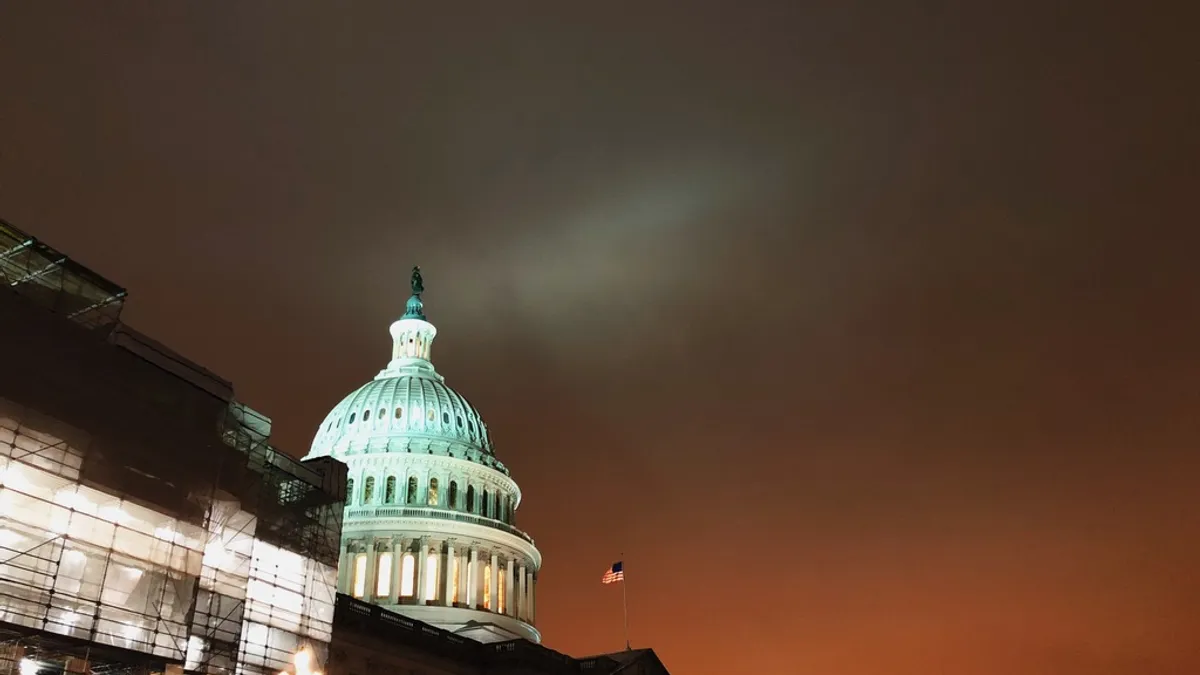Dive Brief:
- A House subcommittee is finalizing draft legislation to ease the transition of financial contracts from the London Interbank Offered Rate (LIBOR) to an alternative interest rate, with leaders from both parties underscoring a need for bipartisan cooperation to limit systemic risk.
-
“This is a test to see whether Congress can pass necessary legislation that isn’t Democratic, isn’t Republican,” Rep. Brad Sherman, D-Calif., chairman of the subcommittee on investor protection, entrepreneurship and capital markets, said while releasing draft legislation aimed at averting litigation over financial contracts that lack fallback language geared to post-LIBOR finance.
- The draft legislation closely tracks a recently passed New York law that could help smooth the transition of a large portion of $1.9 trillion in financial contracts from LIBOR to a new reference rate approved by the Federal Reserve, Sherman said on April 15.
Dive Insight:
LIBOR is the reference rate for trillions of dollars in mortgages, business loans, derivatives and other financial contracts worldwide, and a flawed transition from the benchmark could jeopardize market stability, the Financial Stability Oversight Council of U.S. regulators said in its annual report.
The Fed and other regulators in recent years have urged companies to work internally and with counterparties on making the switch from LIBOR to an alternative reference rate rather than wait for a roadmap from lawmakers or regulators.
“Market participants should continue to view a legislative solution as a risk mitigating backstop of last resort, rather than a transition strategy,” PwC said in an analysis. “The prospect of the bill becoming law doesn’t erase the advantages of a proactive transition wherever possible, beginning with the ability to retain control over the economic outcome of amending or renegotiating a contract.”
Despite warnings from regulators since 2017, many companies in recent years have failed to switch to new reference rates, Fed Vice Chair Randal Quarles said last month, noting that use of U.S. dollar LIBOR has increased to nearly $223 trillion in outstanding financial contracts from about $200 trillion in 2018.
Quarles flagged “safety and soundness concerns” and called for a halt in the use of LIBOR in new financial contracts.
Rep. Bill Huizenga of Michigan, the subcommittee’s senior Republican, pledged during an April 15 hearing to work with Sherman on completing a final draft of legislation. The current draft seeks to avert any contradiction with federal law, including taxation.
“This isn’t necessarily a Democrat or Republican issue,” Huizenga said. Addressing Sherman, he said, “I look forward to working with you in a cooperative manner.”













